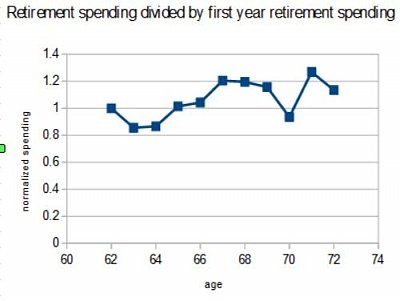daylatedollarshort
Give me a museum and I'll fill it. (Picasso) Give me a forum ...
- Joined
- Feb 19, 2013
- Messages
- 9,358
In my retirement spreadsheet, the modeling I did before we retired showed we would actually come out ahead with high inflation. Our fixed rate mortgage would stay the same, house price (HCOL area) would rise, SS checks and one of the pensions would increase and the inflation factor on our TIPS would rise.
Since we retired I have a hobby of always trying to live better for less with a long list of projects. I try to tackle a few a month and still have quite a long list to go. The lower our fixed expenses, the less they are subject to inflation.
Since we retired I have a hobby of always trying to live better for less with a long list of projects. I try to tackle a few a month and still have quite a long list to go. The lower our fixed expenses, the less they are subject to inflation.
Last edited:

